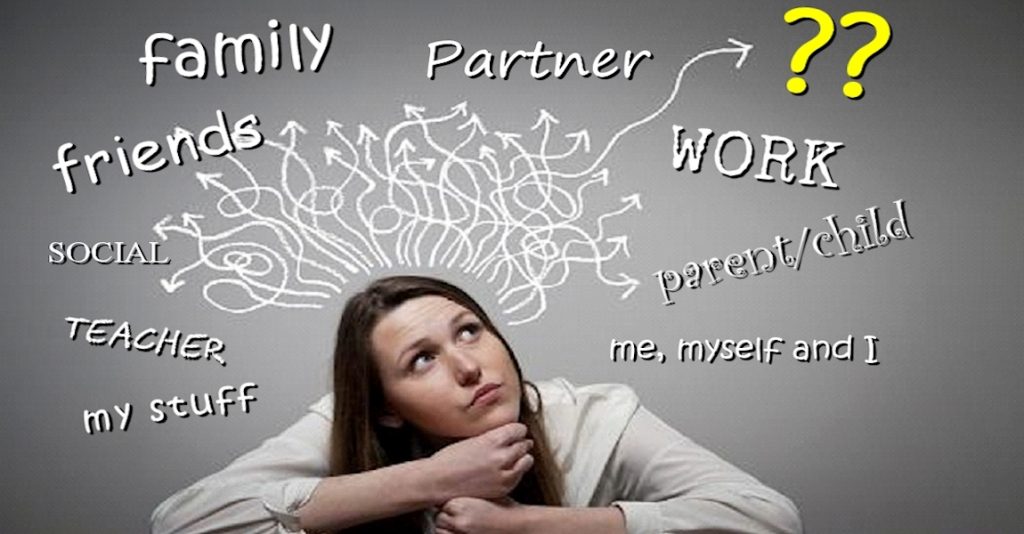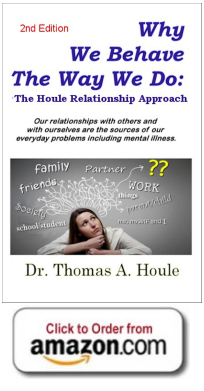To Solve It, You Have To Name It
My wife's friend, Megan, recently shared a story about the first time she visited a Chinese restaurant many years ago.
"I really didn't understand most of the many items on the menu and when the waiter approached to take my order, I stammered foolishly and finally said: 'I would like some Chinese food.' "
"After an uncomfortably long pause, the waiter smiled warmly and said, 'You are certainly in the right place for Chinese cuisine, ma'am, but for me to help you, you’ll have to be more specific than just asking for Chinese food. Specifically, what type of Chinese food are you looking for.' "
Drilling Down
Clearly, Megan needed to be more specific to have her problem solved. The same may hold true if you are looking for help in solving a personal, emotional or behavioral problem. You can’t just identify relationships as the source of the problem, you’ll need to specify the type of relationship involved.
In "Three Very Good Reasons" I wrote that Dr. L. Alan Sroufe and his colleagues have presented scientific evidence showing that troubled relationships cause personal, emotional and behavioral problems including mental illnesses. Going a step further, they also showed that specific relationships cause specific problems—and, there is a good explanation for this.
People act differently in different situations. One reason for this is that these different situations place different expectations on us and our behavior.
The net effect is: You behave differently in different relationships and it is your behavior or the behavior of others that is the source of your personal, emotional and behavioral problems.
For example, suppose you know a person who is unable to keep a job and his lack of work is causing a special problem for you. Instead of looking at that the individual’s character traits such as laziness you need to look at that person’s interaction within the work relationship. You need to look to the various demands the work relationship places on the individual and why he is unable to meet them. Narrowing in on these issues allows you to deal directly with the problem.
Your Various Relationships
Because personal, emotional and behavioral problems reside in one or another of your various relationships, to correct your problem you’ll first need to identify the specific relationship that is the source of the problem.
I’ve found these relationships to be at the root of most problems:
Parent/Child
This relationship needs no explanation.
Teacher/student
This relationship also needs no explanation.
Friends
Friendly relations can occur with anyone and in any of the other relationships. Often in children these relationships are referred to as peer relationships.
Intimate-Marital
Intimate relationships have most characteristics of friendly relationships. The only major distinction is that both parties usually agree, mutually and exclusively, to satisfy each other’s needs.
Extended Family
Family relationships can have several subsets. Sibling and parent-child and adult-child are subtypes of major focus. Relationships with those we commonly refer to as “relatives” e.g. in-laws cousins etc. are also included.
Work
Relationships in this category usually refer to activities where one agrees to do labor for another. Usually this for compensation but volunteer work is also included. In this form, children and their relationship with school-work is also included.
Societal
This type of relationship refers to the person conducting himself within the general rules expected of all citizens. This involves legal and illegal activities.
Relationship with self
This kind of relationship is one you rarely think of as being a "relationship." This one is about a relationship with your self, usually conducted through thought, self-talk and introspection. Because it occurs mostly in one's head it is not observable and therefore difficult to explain.
Relationship with things
This type of relationship involves an interaction with something that has a physical presence, other than human, e.g. animals, cars, computers, radio, TV., games. It's the kind of relationship than can enhance relationships with others. For example teams of people form over things like bowling, car clubs, baseball, basketball and card games such as bridge. This relationship can also take the form of solitary activities such as computer games, model building and watching TV.
The Take-Away
The purpose in identifying the exact relationship in which the problems occur is that it allows you to address your personal, emotional and behavioral problems in a specific and efficient way
It brings into play the specific relationship and the demands it makes on the people in that relationships.
It is these demands that are at the source of your problems.
Thanks for reading.
![]()
©2023. Dr. Thomas A. Houle. All rights reserved.


